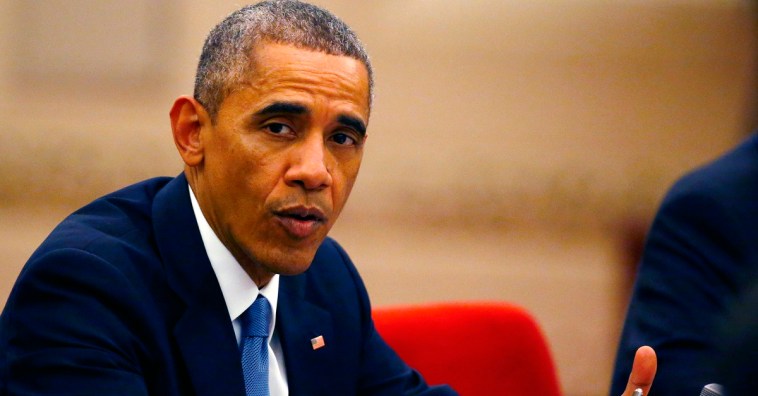The Democrats are still licking their wounds after the midterm elections, where Republicans gained more seats in the House, took control of the Senate and won more governor’s races.
Videos By Rare
Mark Bauerlein observed in the New York Times that shifting voting trends among Millennials was key.
When President Obama was elected president in 2008, it was heralded as “The Year of the Youth Vote.” But looking at the statistics in the most recent election, Democrats saw their Millennial support drop in important races because of lower turnout. Youth disenchantment with Democrats is on the rise, but this doesn’t mean Republicans should cheer.
In 2008, Millennials voted for Barack Obama over John McCain at a 2 to 1 clip. In 2012, that number dropped slightly, but Obama still dominated Mitt Romney 60 percent to 37 percent.
As Baurelein notes, this time around 21 percent of young voters turned out to vote and “[e]xit poll data show that young voters backed House Democrats 54 percent to 43 percent, half the advantage of 2006 and two percentage points lower than in 2010.”
Even more telling were these statistics:
The Senate contests were last fought in 2008, a presidential year, and here the plummet was startling. In North Carolina the rate at which young people voted Democratic fell to 54 percent this year from 71 percent in 2008. Virginia saw it slide to 50 percent from 71 percent. In Arkansas and Alaska, a majority of young voters went Republican.
A broader demographic that may or may not include a large number of Millennials but should nonetheless disturb Democrats is what happened in Iowa.
White voters in Iowa without a college degree have shifted away from the Democratic Party. And if that shift persists, it could have a big effect on the presidential race in 2016, altering the White House math by eliminating the Democratic edge in the electoral college.
There are a lot of white voters in Iowa without a college degree, and they have differed politically from their demographic counterparts nationally. In 2008, President Obama won non-college whites in Iowa by 6 percentage points; he lost them nationally by 18 points. In 2012, college-educated and non-college-educated whites both broke by about 6 percentage points for Obama. That’s very different from nationwide, where Mitt Romney won non-college whites by 25 percentage points while winning college-educated whites by 14 points.
These are precipitous drops, but rising Millennial party independence and skepticism about what goes on in D.C. — not very much — is the reason for lower turnout and disinterest, not a blooming love affair with Republicans.
Millennials are increasingly identifying as independents — “A Pew Research Center survey released in March found that while 40 percent of millennials in 2006 considered themselves political independents, now 50 percent of them do. Moreover, 31 percent believe there is not ‘a great deal of difference in what Republicans and Democrats stand for.’”
Bauerlein writes:
Party identity is meaningless to half of them, and that rate will rise. They pose a new kind of constituency, fluctuating and unpredictable, socially liberal but willing to back conservatives now and then, interested less in party ideologies than in actual individuals put forward as candidates, such as the cool young black senator in 2008. They form one-sixth to one-eighth of the electorate. If politicians take anything away from 2014, they must find a way to cultivate these voters that moves beyond party labels — indeed, beyond identity politics entirely.
All of this is consistent with what we know about Millennials up to this point. They tend to be fiscally conservative and socially liberal — small-L libertarian — and neither party has catered to both of these tendencies.
Ron Fournier of the National Journal, who covers Millennial voting trends regularly, wrote that “Millennial voters are unlikely to align with a political party that expects blind faith in large institutions – either governmental or nongovernmental.”
If Democrats and Republicans are viewed as roughly the same when it comes to expecting faith in party establishment, it’s no surprise that many would just sit at home for the midterms.
Maybe many of them were even taking midterms.
Republicans might be grinning today, but they gained traction in spite of themselves. Whether the GOP’s 2014 gains will translate into 2016 success remains to be seen.

